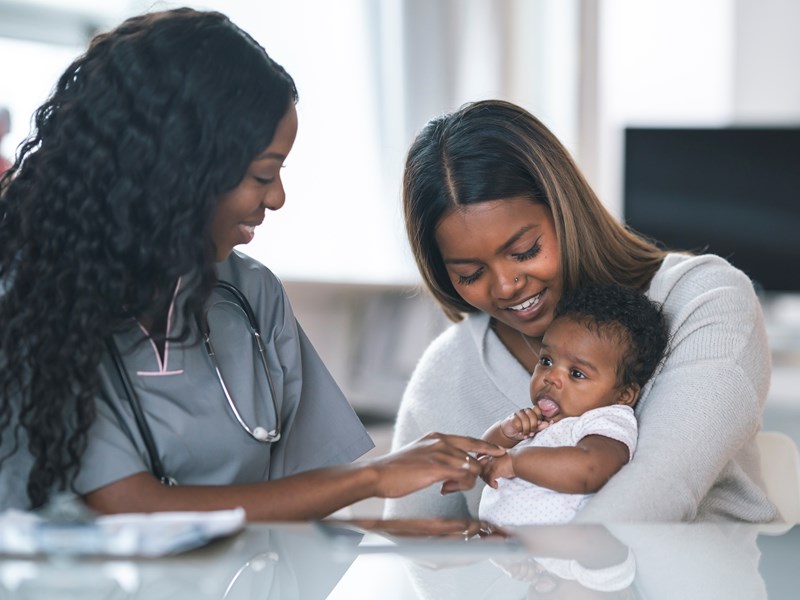Advocates for Basic Legal Equality, Inc. (ABLE) is a non-profit regional law firm that provides high quality legal assistance in civil matters to help eligible low-income individuals and groups in western Ohio achieve self reliance, and equal justice and economic opportunity.
Improving Infant and Maternal Health Outcomes in Ohio Through Targeted Interventions: ABLE Testifies in Support of HB 7

Ohio's infant mortality and maternal mortality rates remain pressing public health issues that disproportionately impact people of color throughout the state. According to the Ohio Department of Health, the infant mortality rate for Black infants is nearly three times higher than the rate for white infants, with a rate of 13.2 deaths per 1,000 live births compared to 4.6 deaths per 1,000 live births for white infants. Black women in Ohio are also disproportionately affected by maternal mortality, with a rate of 37.1 deaths per 100,000 live births, compared to 14.8 deaths per 100,000 live births for white women. These statistics highlight the significant disparities that exist in maternal and child health outcomes in Ohio, which are due to a combination of social, economic, and systemic factors. Targeted interventions, such as those outlined in Ohio House Bill 7, also known as The Strong Foundations Act, are critical to improving the health outcomes of all families in Ohio.
On Tuesday, May 2, ABLE Child Advocate Jennifer Behnfeldt joined with fellow advocates and community members in sharing testimony in the House Families and Aging Committee in support of HB 7. If passed by the Ohio Legislature, the bill would invest $63 million toward providing much-needed support for growing families throughout the state. The bill includes coverage for doula services, providing a pathway to provide continuous Medicaid coverage for babies from birth until their fourth birthday, and second-phase funding for the Healthy Beginnings at Home Program. The bill makes it easier for women to enroll in programs such as SNAP (Supplemental Nutrition Assistance Program) and the Women, Infants, and Children Program (WIC). HB 7 also recognizes the important role that legal services can play in improving health outcomes.
Behnfeldt, who works with ABLE’s Medical-Legal Partnership for Children offered support for the grant program for medical legal partnerships included in HB 7. "MLPs join the skills and expertise of healthcare providers and legal professionals to address the legal needs of patients that affect their health,” she said during her testimony. “For example, a pregnant woman living in substandard housing may be exposed to lead or other problematic housing conditions, which can lead to poor birth outcomes. Poor housing conditions can have a significant impact on the infant and maternal mortality rate in a variety of ways, including exposure to environmental toxins, increased risk of infection, and stress and mental health issues."
Click here to read Behnfeldt’s full testimony.
